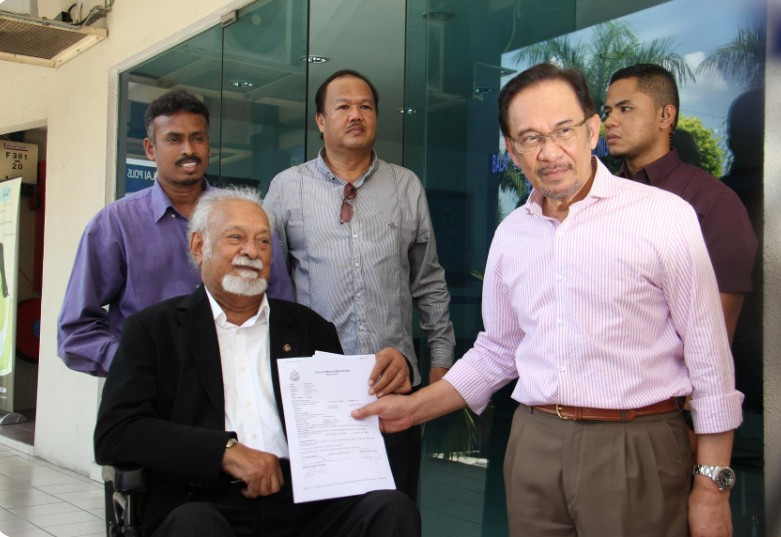LAST Friday, a 32-year-old terrorist named Ahamed Aathil Mohamed Samsudeen attacked a Countdown supermarket in Auckland’s New Lynn area, injuring at least seven people. Three of them are in perilous circumstances.
Aathil, a Sri Lankan, has been under police surveillance since 2016. At the time of the incident, he was refugee there and known Islamic State (ISIS), according to New Zealand prime minister Jacinda Ardern.
Now, how could the Immigration and Protection Tribunal, in 2013, grant refugee status to a person with a proclivity for extremist ideologies without conducting adequate due diligence?
And why, despite his refugee status being withdrawn in 2019, was not deported right away? The New Zealand authorities were safeguarding the fundamental rights of someone who poses a threat to all New Zealanders. What about the victims’ and their families’ rights? Is the law designed to defend the innocent or someone brainwashed into believing in a false religious ideology?
Despite the fact that Aathil is known to New Zealand authorities as a threat, the current legislation does not provide any avenue to deal with such matter. Now, Ardern wants to accelerate the approval of a contentious new anti-terrorism law, predicting that it would be passed by the end of the month.
The questions
Here are some things we need to ask. Why were the New Zealand intelligence and security agencies reluctant to arrest him in advance as a precautionary measure to stop him from launching terrorist attack, despite the fact that he was killed within a minute of the attack?
Why did they only intervene after Aathil had carried out the attack on the defenseless shoppers?
The primary objective of any security or intelligence agency is to safeguard the general public, especially women and children, using whatever measures are available. Why must they be overly cautious while dealing with terrorists who do not respect the law and have no regard for innocent lives?
Once a terrorist, always a terrorist
First up, Aathil is a terrorist, not a “violent extremist” as some media outlets have stated. A terrorist refers to someone who commits acts of terrorism. This deluded individual, who completely believes in a false religious ideology, does not deserve any sympathy because his primary objective is to murder innocent people.
Last May, a similar attack occurred at a Countdown supermarket in Dunedin, New Zealand’s South Island, in which the assailant stabbed four people, three of whom were in severe condition. It was a random attack, according to Superintendent of Police Paul Basham.

The motive for the incident has not been determined, according to Ardern, and the authorities have no evidence to prove that it was a terror attack. Furthermore, she has warned that an attack of this magnitude is unquestionably alarming.
The police and prime minister’s statements following the incident in May demonstrated that they do not comprehend the magnitude of terrorism strikes in New Zealand. In a nutshell, its present security and intelligence strategies are not serving the best interests of New Zealanders.
Last Friday’s incident, like the one in May, took place at the same supermarket in two distinct cities. The similarities between these attacks should not have been discounted lightly by the intelligence agencies. They must investigate whether these two incidents are connected in any way. They must also determine if these perpetrators acted alone or in groups.
Plus, the security team also need to find out if the duo had kept in touch with anyone suspicious before the attacks happened.
In general, terrorists favour public venues with inadequate protection, as evidenced by the Paris and London attacks. By employing unorthodox weapons such as knives, they can target the public who are unaware of the threat.
They maximise the impact by carrying out such attacks in public places where victims will be caught off guard.
There have not been many terrorist attacks in New Zealand, but the most recent one occurred on March 15, 2019, when a terrorist attacked the Al Noor Mosque and Linwood Islamic Centre in Christchurch. The terrorist was apprehended and convicted accordingly.
In my view, this can be linked back to the rise of Taliban following the withdrawal of US and North-Atlantic Treaty Organization (NATO) forces from Afghanistan. As I have mentioned in my previous column, Taliban’s “win” would serve as a huge morale boost to terror groups across the globe.
The collapse of the ISIS Caliphate in Syria and Iraq, as well as the death of al-Qaeda supremo Osama Bin Laden, have demotivated these terrorists but things have changed since Taliban’s rise.
And this is a threat no country’s intelligence or security agencies should underestimate. The terrorist attack in Auckland can be considered as the start of a wave of attacks that will affect not only the West but also the rest of the world, particularly Asia.
One must understand that terrorists are not affiliated with any ethnicity or religion. Even if they try to identify with a specific race or religion, they are misled individuals who follow a false ideology.
They must be handled with carefully, with adequate legislative bite given to the authorities to throw the book at terrorists before they could even act against innocent public.
In Malaysia, we have laws such as the Security Offences (Special Measures) Act 2012 (SOSMA), the Prevention of Terrorism Act 2015 (POTA), and the Special Measures against Terrorism in Foreign Countries Act 2015 (SMATA), as well as Chapter VIA of the Penal Code, which deal with terrorism-related offenses.
Even if some human rights activists are opposed to such “tough” legislation, it has been demonstrated time and time again that countries such as the UK and New Zealand need to consider such laws to protect its citizens.
Governments are duty-bound to protect its law-abiding citizens, not terrorists who have scant regard for another human being’s life. – Sept 6, 2021.
R Paneir Selvam is a senior lecturer at the Faculty of Business, Economic and Accounting/Institute of Crime and Criminology, HELP University.
The views expressed are solely of the author and do not necessarily reflect those of Focus Malaysia.
Photo credit: NDTV.com









